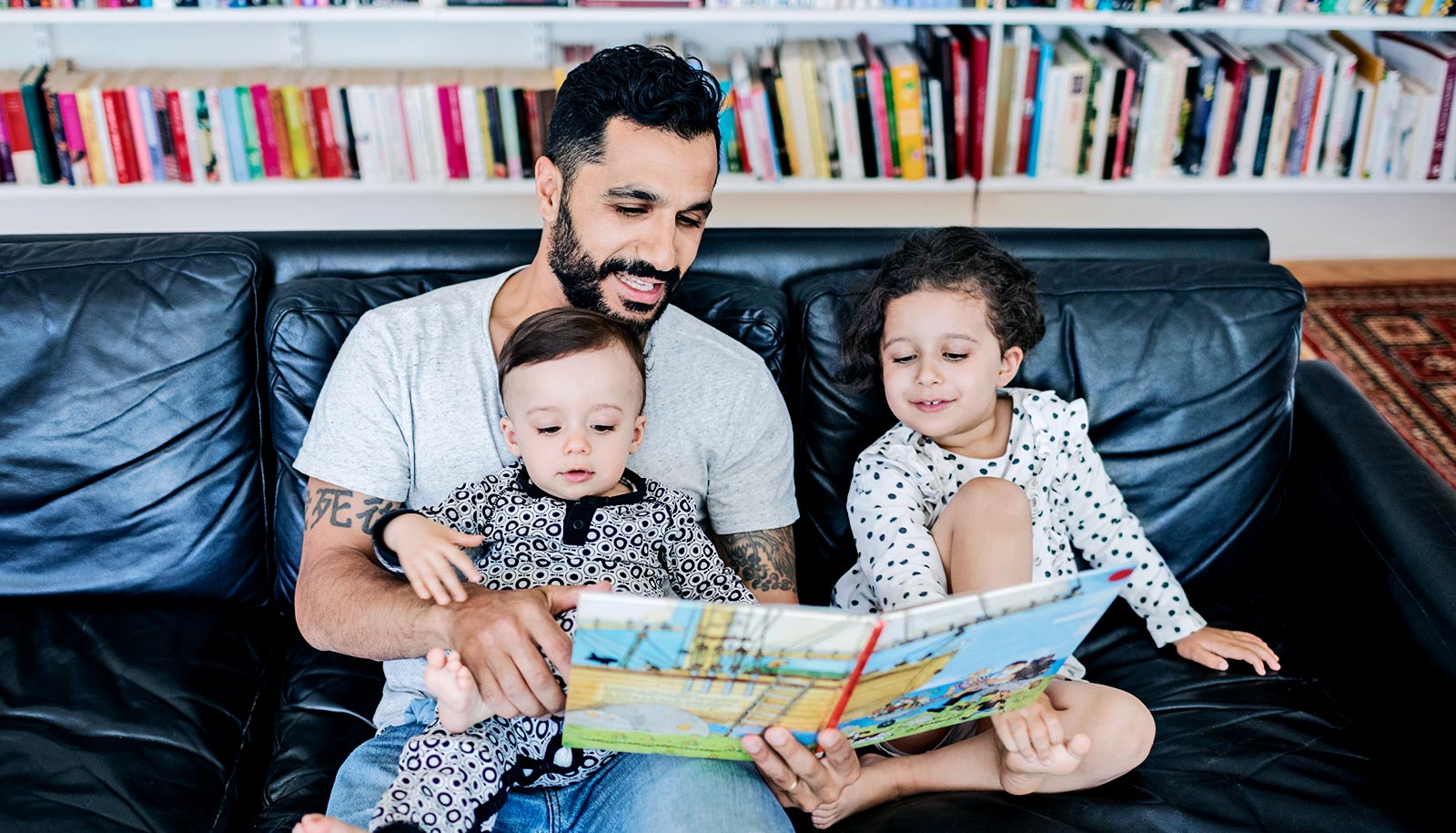Using audio-enhanced, interactive, pre-recorded storybooks can improve the vocabulary of at-risk preschoolers, a new study shows.
That’s good news for getting a vulnerable population of children ready for school.
“While we are working with children who are only 4 or 5 years old, we teach them the vocabulary words they will need to know when they eventually enter elementary or middle school,” says Elizabeth Kelley, an assistant professor in the School of Health Professions at the University of Missouri.
“If we can teach them more challenging words while they are young, we can give them the language skills they will need to be ready for school and set them up for success throughout their lives.”
As reported in the Journal of Speech, Language and Hearing Research, Kelley and Howard Goldstein of the University of South Florida developed Story Friends, an audio-based intervention program designed to improve vocabulary knowledge of at-risk preschoolers.
They implemented the program into 24 preschool classrooms in Missouri and Florida, where select students listened to audio recordings as they followed along in storybooks that had embedded vocabulary lessons within the stories.
The result: the preschoolers learned specific words from the stories such as “disappointed,” “enormous,” “brave,” and “protect.” The preschoolers had not previously understood these common, yet challenging words.
“We know the experiences students have early on can greatly influence their future performance in school and their overall health and well-being,” Kelley says. “If we can give teachers tools that help them deliver effective instruction, we can help kids have the language skills they need to be successful in school and in life.”
Research has shown a preschooler’s vocabulary knowledge is strongly correlated with their future reading comprehension capabilities, and children with strong language skills not only have better academic outcomes, but they also are less likely to engage in troubling classroom behavior.
Although the researchers designed the intervention to specifically target children struggling with language skills, preschool teachers reported that using the pre-recorded storybooks with embedded vocabulary lessons in their classrooms helped expand the word banks for all of their students.
“Our primary goal is to focus on assisting kids with language concerns, but we found that this strategy can be utilized with all preschoolers,” Kelley says.
“Going forward, this strategy can be used to help young students expand their language skills in general, and at-risk students with limited vocabularies can be identified for more specialized, tailored training and additional support.”
To expand her research, Kelley plans to examine the long-term effects of her intervention on preschoolers’ vocabulary development as they enter kindergarten, elementary school, and beyond.
The US Department of Education’s Institute of Education Sciences funded the work.
Source: University of Missouri



